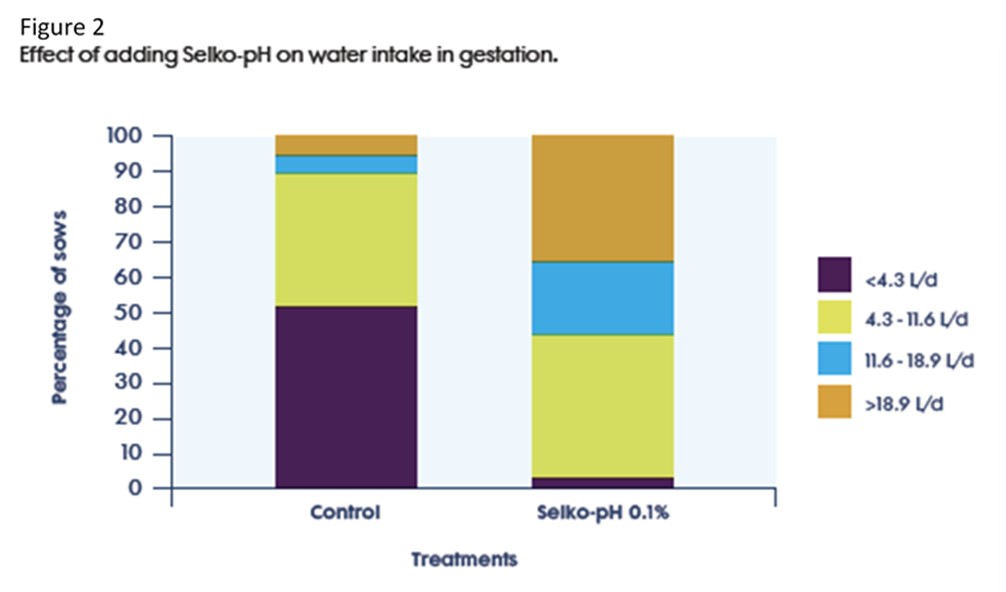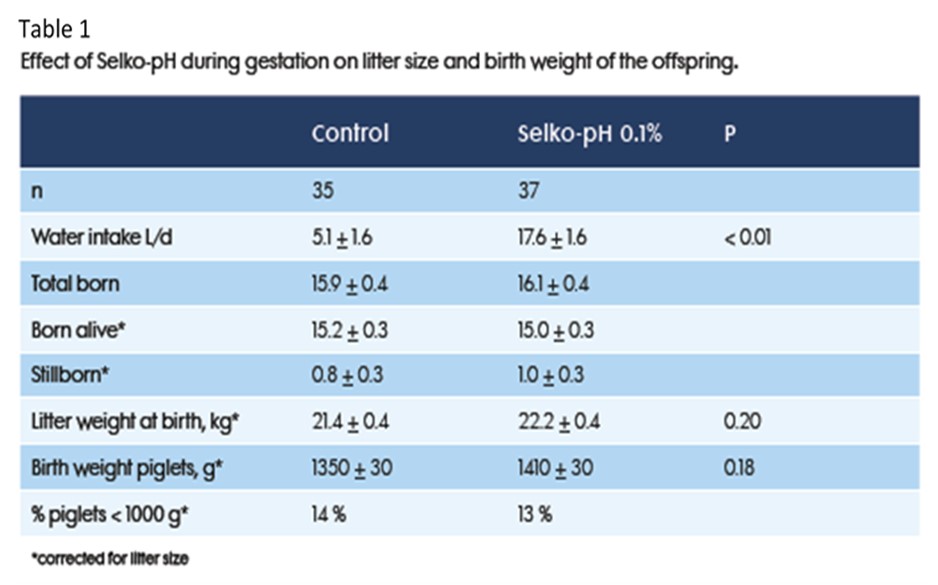



Research finds organic acids increase water intake in gestating sows and may benefit piglet viability
A study conducted by Trouw Nutrition’s Swine Research Centre reveals that gestating sows receiving a drinking water additive composed of free and organic acids during the last 80 days of gestation had significantly higher water intake compared to a control groupThe study findings support earlier research showing an association between higher water intake and key metrics of piglet viability including higher birth weight, litter weight and colostrum intake. Trouw Nutrition researcher, Pieter Langendijk, shared the findings during a poster presentation at the European Symposium of Porcine Health Management, 9-11 May, in Barcelona.
Previous studies have shown that sows’ water intake varies widely throughout the gestation period (Figure 1). To gain insight into the relationship between gestating sows’ water intake and key measures of piglet viability, such as higher birth weight, Trouw Nutrition researchers conducted a study that compared intake among sows receiving a drinking water additive (Selko pH) and a control group.
.jpg)
In the mixed parity study, gestating sows received Selko-pH at 1L/1000 L from day 80 of gestation through farrowing. A control group received normal, quality assurance tested mains water. Intake levels showed a significant increase in water intake among the sows receiving Selko-pH compared to sows in the control group. Nearly all of the sows receiving Selko pH had water intake levels above 11.6L per day. In contrast, 50% of the sows in the control group drank less than 4.3 L per day, an amount below recommended levels (Figure 2).

Due to the large variance in water intake among sows in the study, researchers classified water intake across three levels: low (less than 4 L/d), medium (4-10.5 L/d) and high (more than 10.5 L/d). The sows in the high-intake category had the highest litter and piglet birth weights (Table 1). Offspring of sows in the high intake category also had higher colostrum intake levels than piglets in the medium and low intake categories.

Expanding on the research findings, Dr Juan Antonio Mesonero Escuredo, global programme manager for swine gut health at Trouw Nutrition, noted increased water intake is associated with positive effects beyond gestation. For example, looking at the effect of water intake on lactation, overall feed intake was increased 600 grams per day in the second week of lactation and 300 grams per day in the third week of the lactation period. “Increasing feed and water intake during lactation is beneficial to the sow, helping her experience fewer problems with lactation and a better return to oestrus,” Dr Mesonero Escuredo said. Additionally, higher water intake during gestation can reduce constipation and ease the partus process. “Increased water intake during gestation and lactation can also decrease the risk of urinary tract infections in sows,” Dr Escuredo stated.
The scientific poster presentation “Effect of water intake in sows” presented by Trouw Nutrition at the European Symposium of Porcine Health Management may be accessed here. As part of an integrated approach to improving animal health and performance through feed, farm and health strategies, Trouw Nutrition continues to invest in research that advances precision nutrition.
As reported by Trouw Nutrition
Image: LT Hunter









